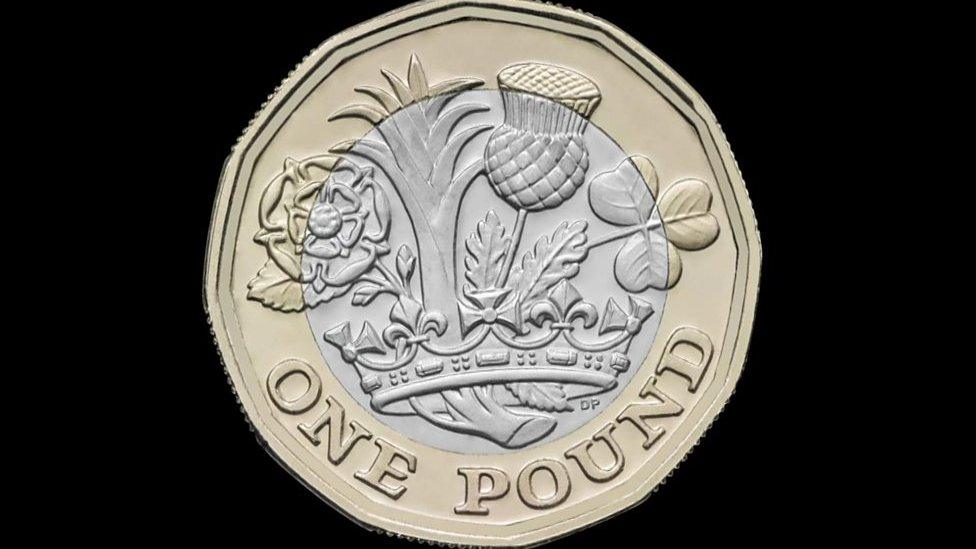New £1 coin: What do you need to know about the end of the round pound?
- Published
The new £1 coin comes into circulation this month, signalling the beginning of the end for the round pound, which will be completely phased out by 15 October.
If you're struggling to make heads or tails of the change, here's what you need to know, including what to do with your old coins and what it means for those supermarket trolley key fobs.

You might also like

What will the new £1 coin look like?

Schoolboy David Pearce drew the "tails" design for the new £1 coin
The new £1 coin is about the the same size as the old one but has 12 edges and is gold and silver.
It features a hologram where the "£" symbol changes to the number "1" when viewed from different angles.
The "tails" side was drawn by schoolboy David Pearce, who in 2015 created a design of the four plants that represent the UK's four nations.
He said he "spent a lot of time researching what coin designs looked like and what sort of designs would represent all parts of the UK" before drawing a leek, thistle, shamrock and rose coming out of a crown.

Why the change to our change?
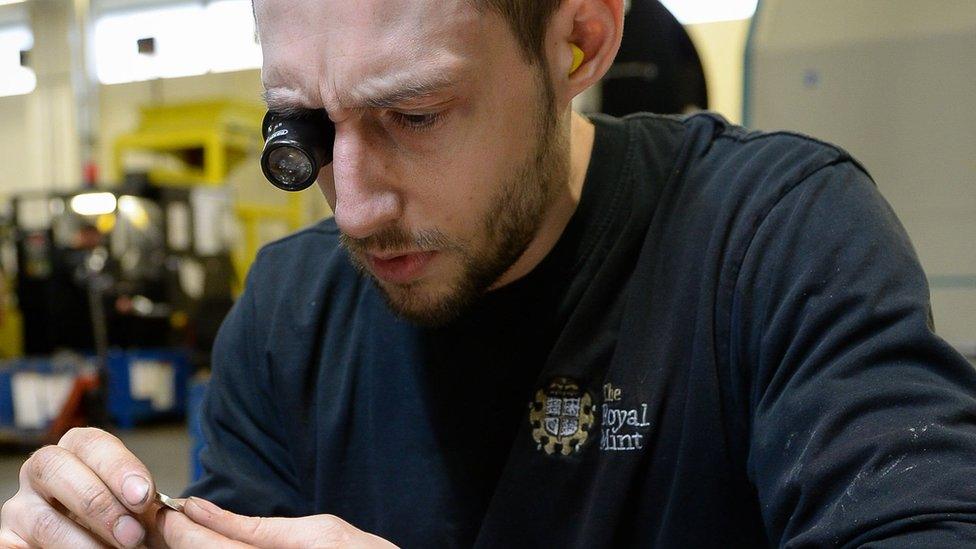
The new design is meant to be harder for criminals to fake and is billed as the "most secure coin in the world".
About 45 million £1 coins, or 3% of those in circulation, are apparently counterfeit.
Royal Mint, which produces the coins in its Llantrisant factory in Wales, says the new £1 features a complex "patented high-security feature" to prevent copycats.
Distinctive features - including grooves on the coin and tiny lettering - are meant to make it easier for shopkeepers and bank tellers to recognise a genuine coin.

What do I need to do?
The BBC's Jon Ironmonger reports: "This year, all of the UK's pound coins will be phased out"
Shoppers can use both old and new coins from 28 March. They have until 15 October to spend old £1 coins or return them to the bank.
If your local bank or Post Office refuses to accept them, they can be exchanged at the Bank of England in London.
This means savers should raid their piggy banks and search sofas and glove compartments before their spare change loses its legal tender status.
Business owners are being urged to make sure staff are trained to recognise the new coins and to change their equipment, with a website, external aimed at firms explaining the changes.

What about vending machines and parking meters?
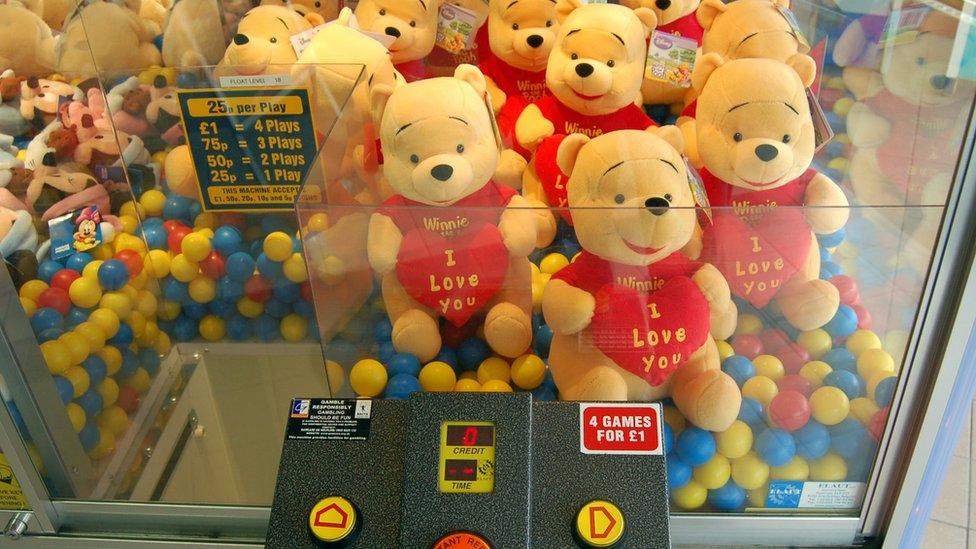
Vending machines, slot machines, parking meters and toilet turnstiles will all have to be adapted to accept the new coins and reject old ones.
Several supermarkets have said they are getting ready by making sure self-checkout machines accept old and new coins from 28 March.
They will reject round £1 coins when they go out of circulation in October.
But Bryony Andrews, features editor at Vending International magazine, warned that some vending machines might be slow to adapt.
"It could be difficult if operators haven't got around to updating their equipment in time," she said. "In that case, there would be a period when they can't accept the old coins or the new ones."

Will my £1 trolley fob be useless?
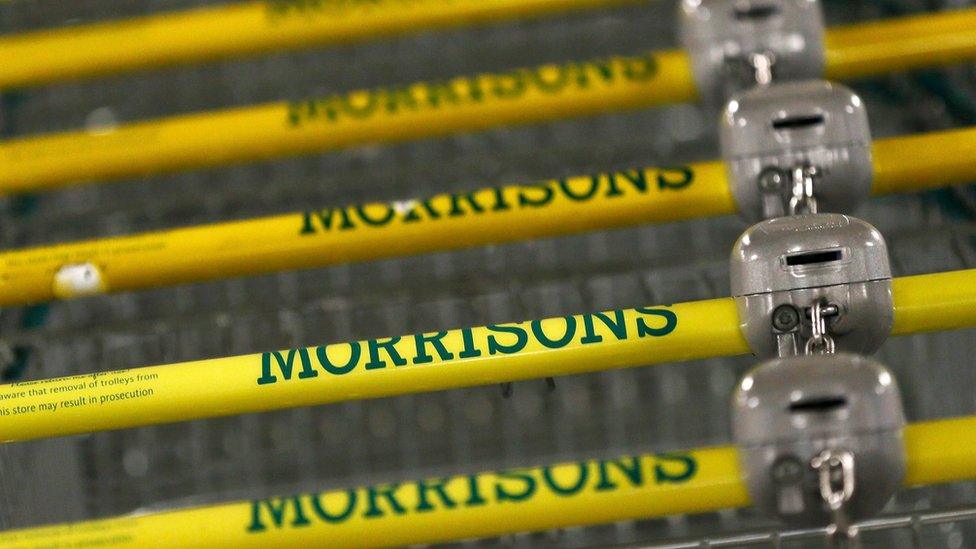
If you have a key ring the same size as a £1 coin that fits in to supermarket trolleys, you may still be able to use it after October.
The bigger supermarkets, including Morrisons and Sainsbury's, say their trolleys will accept both the new and old £1 coin, as well as tokens used to resemble them.
Asda told customers not to "worry about our trolleys" which will accept the new £1 coin, the existing version and trolley tokens.

Are £1 coins worth collecting?
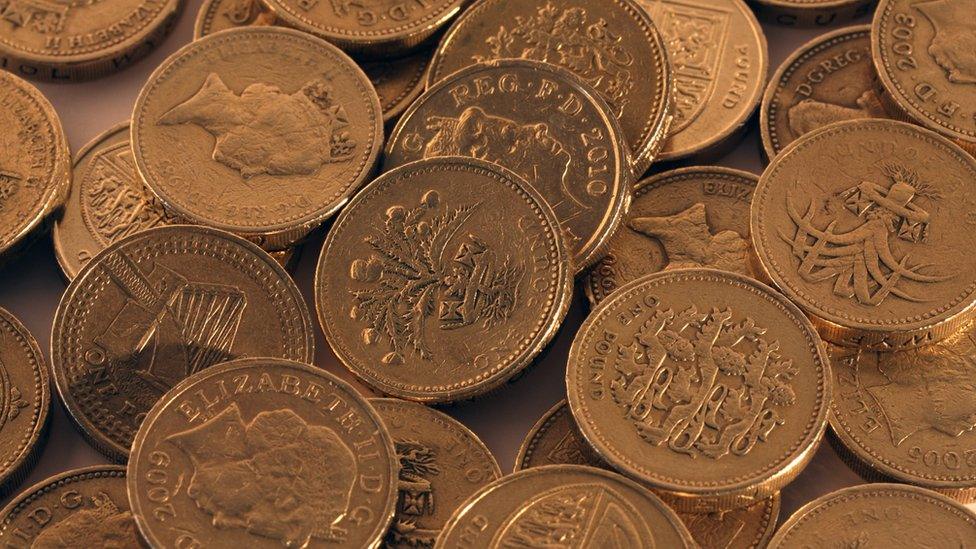
Old £1 coins could become collectible when they cease to become legal tender, according to experts.
"The end of the round pound means many people will want a complete collection from 1983 to today," explains London dealer Richard Lobel, of Coincraft.
He says coins in "brilliant uncirculated condition" are desirable but more as souvenirs than an investment.
"They're difficult to get because nobody puts them aside, after all they are £1 not a penny. But don't expect them to rocket in value."
Mr Lobel also advised people to save their new coins, which could become collectors' items.
"Lots of people save a coin in the first year of issue, but fewer in the second and in the third year fewer still," he says.
"Put a pound away every year and build up a little collection."

Update 16 March 2017: This page has been updated to give more information on disposing of old £1 coins.
- Published20 March 2014
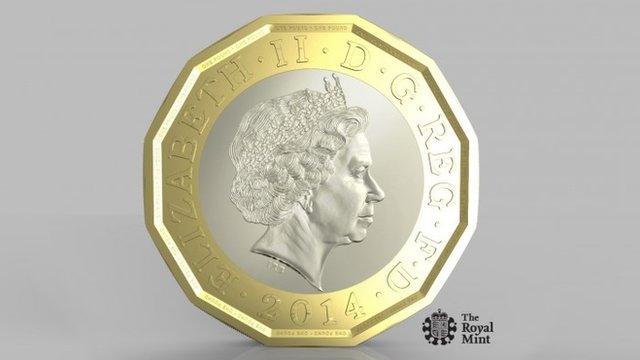
- Published16 December 2015
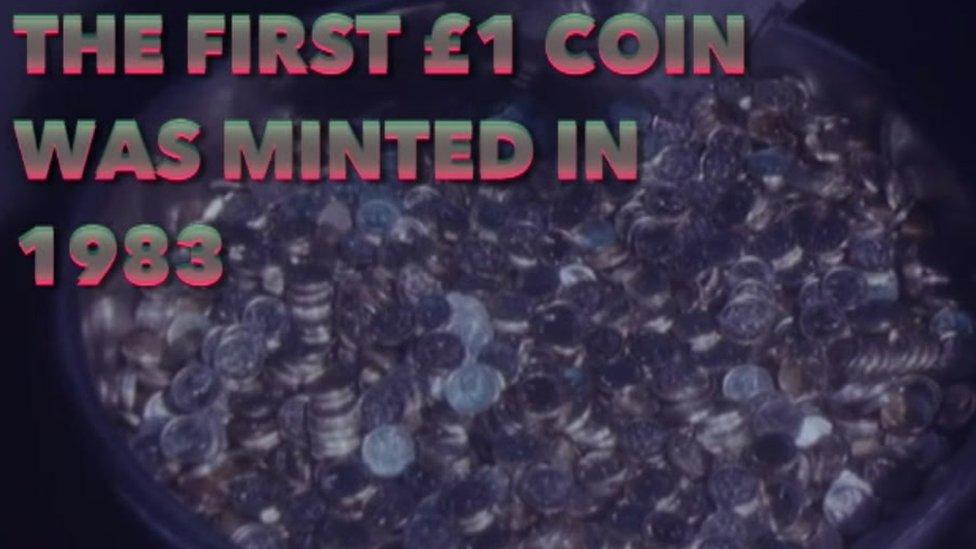
- Published13 September 2016
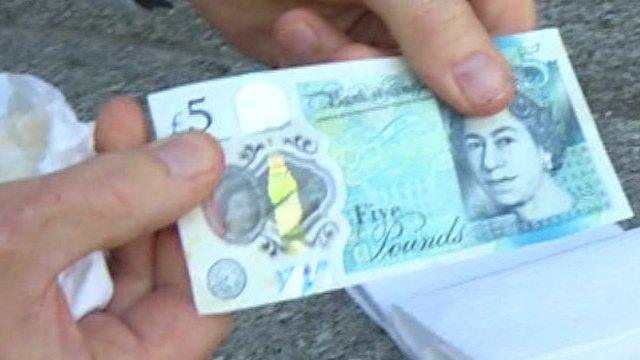
- Published13 September 2016
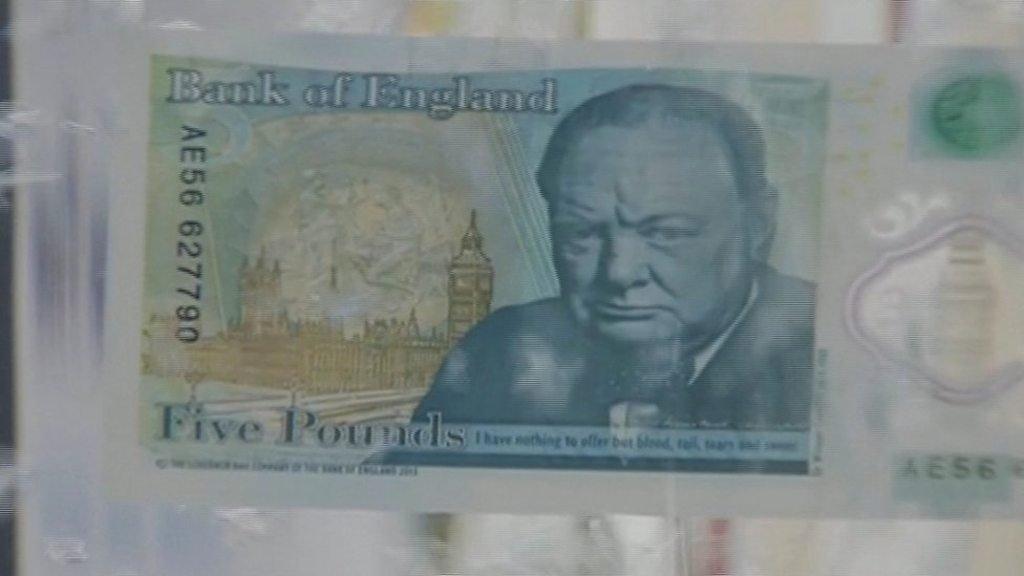
- Published22 September 2016
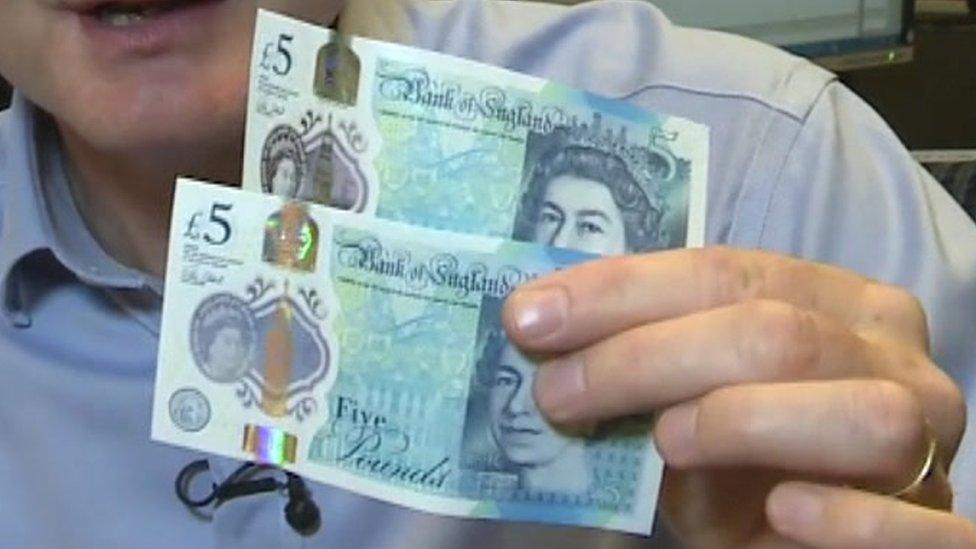
- Published17 March 2011
- Published1 January 2017
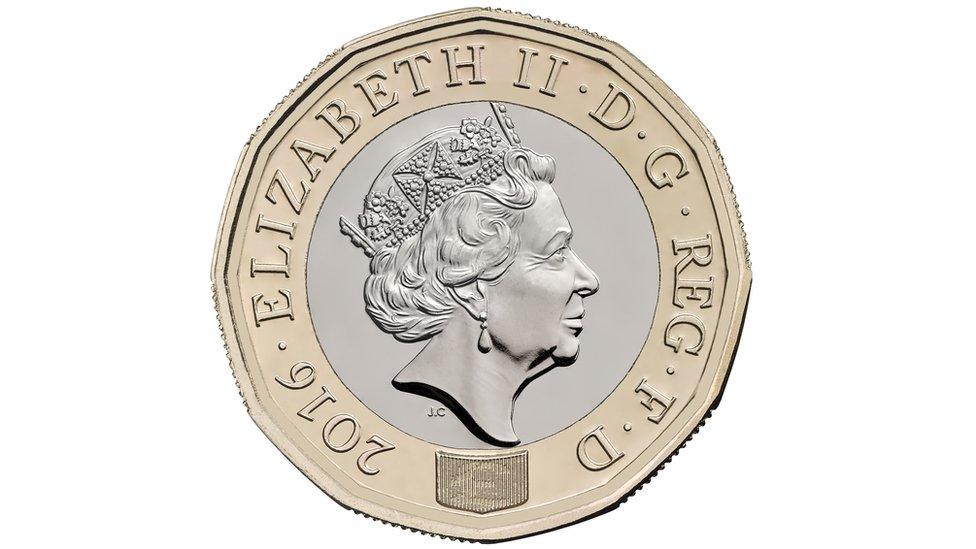
- Published1 January 2017
